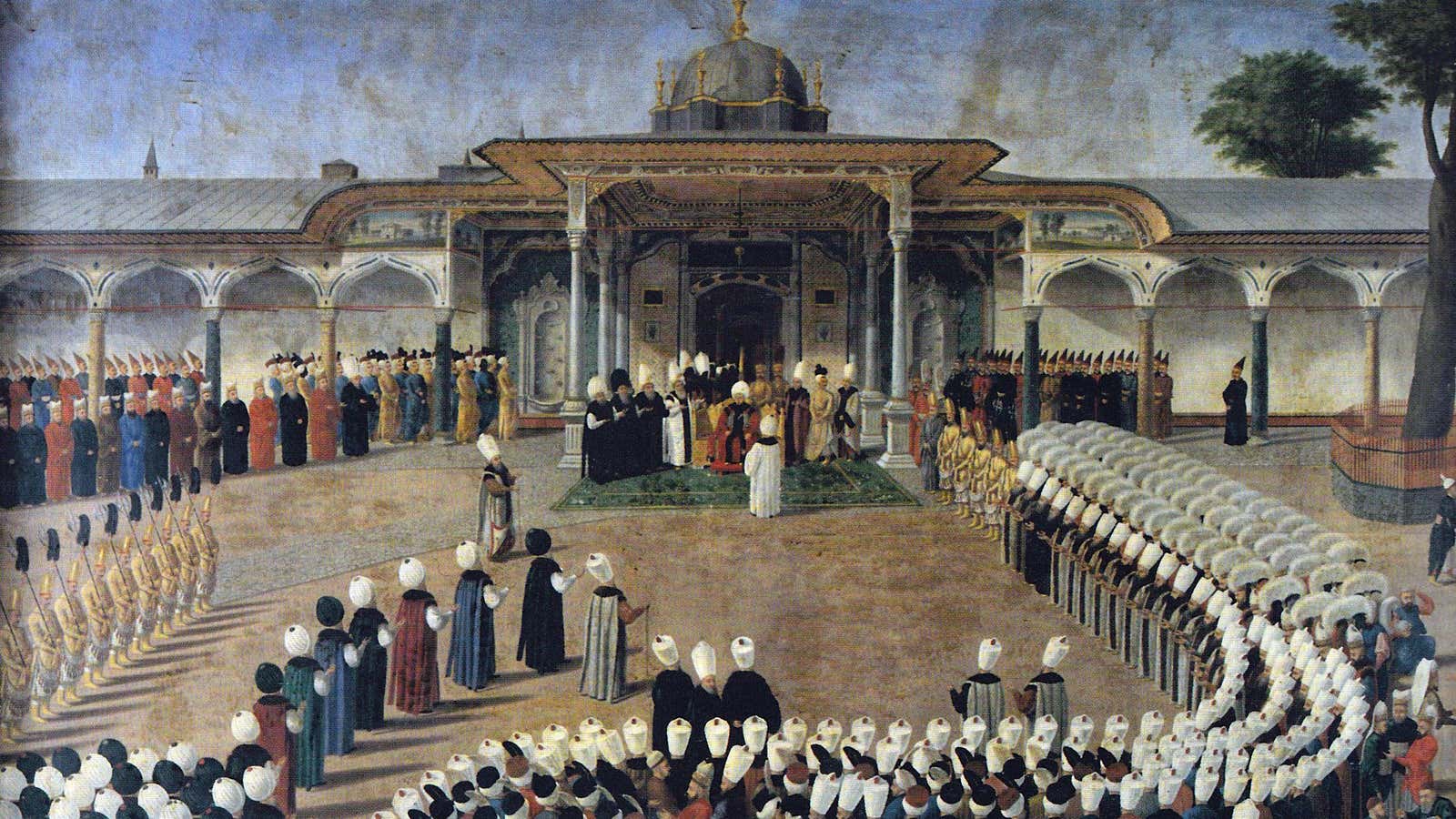In the waning days of the Ottoman Empire, Tsar Nicholas of Russia dubbed the ailing state “the sick man of Europe.” This mid-19th century turn of phrase soon proved useful in other contexts, and was duly applied to other countries. Some 160 years later, in September 2015, Finland’s finance minister lamented that “basically, we are the sick man of Europe.”
Amid Europe’s many political and economic travails, the evocative imagery conjured by the phrase has proved irresistible. Indeed, by this point nearly every country in Europe has been dubbed the sick man of Europe at one time or another. That their ailments often pale in comparison to the epic Ottoman collapse is neither here nor there.
Quartz has collected a selection of 60 notable “sick man of Europe” mentions in books, media reports, and academic papers, from Ottoman times to the present day. See for yourself:
An early incarnation of the American rock band Cheap Trick even called itself The Sick Man of Europe. But why limit things to Europe? The phrase also has been adapted for other regions—the sick man of Asia, the sick man of America, and even “the sick man of Maine road races” (Portland Press Herald, 2005).
Part of the phrase’s appeal may have something to do with the many opportunities it provides for all-too-cleverly expanding on the medical metaphor of a “sick man”—a country might be a “patient” needing economic “prescriptions” or a good “doctor.” No example of this is more extreme than one we found in an edition of the New York Times from 1917 with the headline “Crane Diagnoses Russia’s Ailment,” in which it is said that the country is “Suffering From Overdose of Exaggerated Modernism in Socialist Reform Ideas”:
“Russia,” said Mr. Crane, “is now the sick man of Europe.” Continuing the simile, he declared that the danger for the patient lay in the fact that too many quacks and ignorant specialists were contending for the right to be admitted to the bedside and administer nostrums whose value in any case was doubtful and which should certainly be tried under other circumstances before being administered under conditions which might result in the death or permanent invalidism of the sufferer.
There is also the fact that the phrase applies the word “man” to a nation. That makes it easy enough to describe both actual men and abstract organizations, such as Boris Yeltsin or the English national soccer team. (Weirdly, golf writers seem particularly fond of the metaphor.) But the gendered “man” also provides the kind of historical flavor that is a little offensive to modern ears.
Tsar Nicholas’ phrase referred to ”the” sick man, meaning there was only one, and not 60. Maybe the most accurate uses, then, are those that say the real sick man is Europe itself—if not the writers who keep resurfacing the metaphor.
